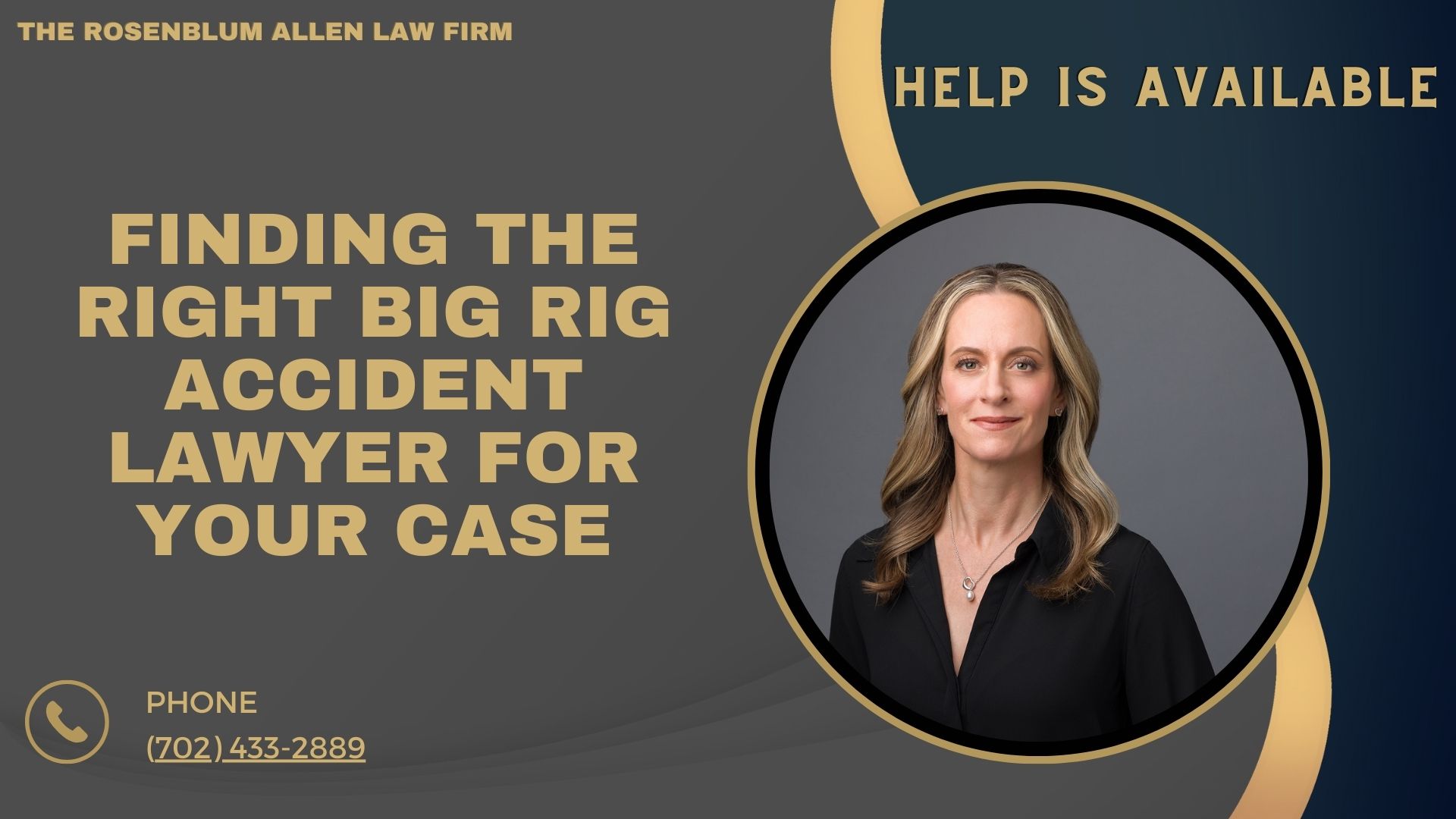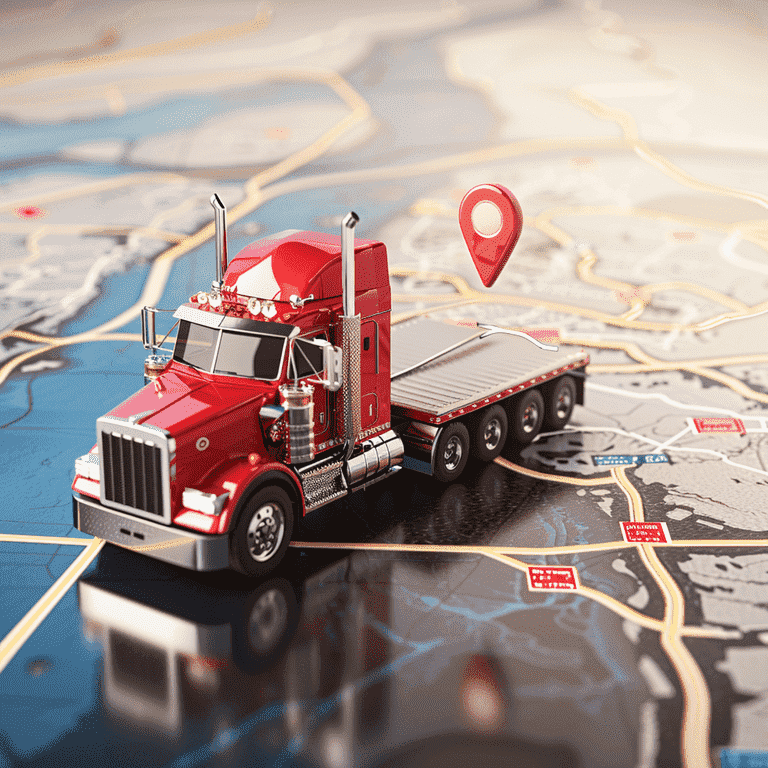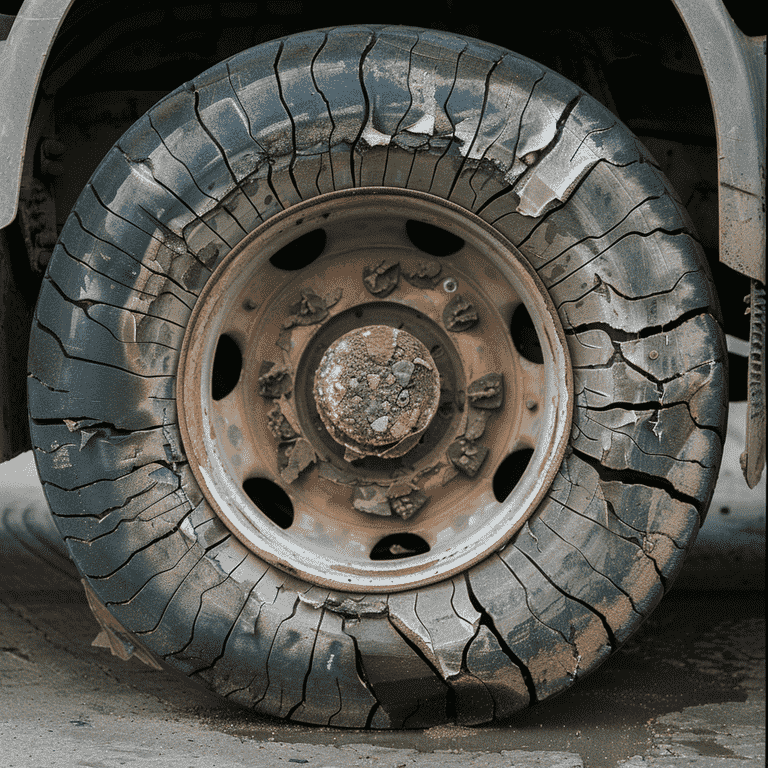Significant rig accidents can be devastating. Hiring a specialized lawyer is crucial if you or a loved one has been involved in such an accident. Significant rig accident cases are complex, involving specific regulations and unique challenges. The right lawyer can make a substantial difference in the outcome of your case.

What is a Big Rig Accident Lawyer?
A top rig accident lawyer handles legal cases. They involve large commercial trucks, commonly known as big rigs or 18-wheelers. These lawyers have deep knowledge of the laws. The laws are specific to the trucking industry.
How a Big Rig Accident Lawyer Differs from Other Personal Injury Lawyers
Expertise in Trucking Regulations: They understand both federal and state trucking laws.
Experience with Commercial Vehicle Cases: They have handled numerous cases involving big rigs.
Specialized Knowledge: They are familiar with the unique aspects of truck accidents, such as electronic logging devices (ELDs) and maintenance records.
Why You Need a Big Rig Accident Lawyer
Significant rig accident cases are not like regular car accident cases. Here’s why you need a lawyer with specialized expertise:
Expertise in Federal and State Regulations
Understanding Trucking Laws and Regulations
Federal Motor Carrier Safety Administration (FMCSA) Rules govern hours of service, maintenance, and safety standards.
State-Specific Laws: Each state has its regulations for commercial vehicles.
Experience with FMCSA Rules
A lawyer with FMCSA expertise can find violations. The violations may have caused the accident. This knowledge is crucial for building a solid case.
Handling Insurance Companies
Navigating Complex Insurance Policies
Multiple Policies: Big rigs often have several layers of insurance coverage.
Understanding Policy Details: A specialized lawyer can interpret and apply these policies to your benefit.
Negotiating with Insurance Adjusters
Experience in Negotiation: These lawyers have the skills to negotiate with harsh insurance adjusters.
Maximizing Your Compensation: They ensure you receive fair compensation for your injuries and losses.
Investigation and Evidence Collection
Accident Scene Reconstruction
Expert Analysis: Specialists can recreate the accident scene to understand how it happened.
Critical Evidence includes skid marks, vehicle damage, and road conditions.
Gathering Critical Evidence
Electronic Logging Devices (ELDs) record driving hours and can show whether the driver complied with regulations.
Maintenance Records: Regular maintenance logs can indicate if the truck was properly maintained or if there were known issues.

Qualities to Look for in a Big Rig Accident Lawyer
Choosing the right lawyer is crucial. Here are some qualities to look for:
Experience with Big Rig Accident Cases
Track Record of Successful Outcomes
Case Examples: Ask for examples of similar cases they have won.
Settlement Amounts: Inquire about the settlements they have secured for clients.
Knowledge of Trucking Industry Regulations
Understanding FMCSA Guidelines
In-Depth Knowledge: The lawyer should be well-versed in FMCSA guidelines and how they apply to your case.
Staying Updated: Regulations can change; your lawyer should stay informed about the latest updates.
Familiarity with State-Specific Trucking Laws
State Regulations: Each state has different rules for commercial vehicles. Your lawyer should know the specifics of your location.
Strong Negotiation and Trial Skills
Experience in Courtrooms and Trial Settings
Courtroom Presence: Your lawyer should be comfortable and experienced in court.
Trial Strategy: They should have a clear plan for how to win your case in court if necessary.
Ability to Negotiate Favorable Settlements
Negotiation Tactics: Effective strategies can lead to better settlements without trial.
Maximizing Compensation: The goal is to ensure you get the highest possible compensation.

Steps to Take After a Big Rig Accident
Being involved in a big rig accident is a traumatic experience. Knowing the steps to take afterward can make a big difference. They affect the outcome of your case.
Immediate Actions at the Scene
Ensuring Safety and Medical Attention
Check for Injuries: Assess yourself and others for injuries. Call 911 if anyone needs urgent medical attention.
Move to Safety: Move out of the traffic flow to a safe location.
Documenting the Scene and Gathering Witness Information
Take Photos and Videos: Capture the scene, including vehicle damage, skid marks, and road conditions.
Collect Witness Information: Get the names and contact details of any witnesses.
Reporting the Accident
Contacting the Authorities
Call the Police: Report the accident and wait for law enforcement to arrive.
File a Police Report: Ensure an official accident report is filed.
Filing Necessary Reports and Documents
Notify Your Insurance Company: Report the accident to your insurer immediately.
Keep Records: Maintain copies of all documents related to the accident.
Seeking Medical Attention
Importance of Timely Medical Evaluation
Immediate Check-Up: Even if you feel fine, see a doctor. Some injuries may not be immediately apparent.
Follow-Up Care: Attend all follow-up appointments and adhere to medical advice.
Documenting Injuries for Legal Purposes
Medical Records: Keep detailed records of your injuries and treatment.
Doctor’s Notes: Obtain written statements from your doctor regarding your condition and prognosis.

How a Big Rig Accident Lawyer Can Help
A specialized lawyer can provide essential support and expertise throughout your case.
Case Evaluation and Legal Advice
Free Consultations and Case Assessments
Initial Meeting: Most big rig accident lawyers offer free consultations to discuss your case.
Assessment: They will evaluate the facts and honestly assess your case’s strengths and weaknesses.
Legal Strategies and Options Available
Tailored Advice: The lawyer will outline potential legal strategies based on your case details.
Clear Options: They will explain your options and help you make informed decisions.
Handling Communication with Insurance Companies
Preventing Common Pitfalls with Insurance Adjusters
Representation: Your lawyer will handle all communication with insurance adjusters to protect your interests.
Avoiding Traps: They know how adjusters minimize payouts and will help you avoid these pitfalls.
Ensuring Fair Treatment and Compensation
Advocacy: Your lawyer will advocate for you to receive fair compensation.
Negotiation: They will negotiate aggressively to maximize your settlement.
Building a Strong Case
Collecting and Preserving Evidence
Gathering Evidence: Your lawyer will collect critical evidence, such as accident reports, witness statements, and electronic data from the truck.
Preserving Evidence: Ensuring evidence is correctly maintained in negotiations or court.
Working with Experts and Witnesses
Expert Testimony: Your lawyer may work with experts in accident reconstruction, medical professionals, and others to strengthen your case.
Witness Preparation: They will prepare witnesses to provide clear and compelling testimony.

What to Expect During the Legal Process
Understanding the legal process can help you feel more confident and prepared.
Initial Consultation and Case Assessment
What to Bring to the Consultation
Accident Details: Bring any photos, videos, and written accounts of the accident.
Medical Records: Provide documentation of your injuries and treatment.
Insurance Information: Have your insurance policy details and any communication with insurers.
Questions to Ask Your Lawyer
Experience: Ask about their experience with significant rig accident cases.
Strategy: Inquire about their proposed strategy for your case.
Fees: Understand their fee structure and any costs you might incur.
Investigation and Evidence Gathering
Timeline and Process
Initial Investigation: This typically begins immediately and includes collecting evidence and interviewing witnesses.
Ongoing Updates: Your lawyer should keep you informed about the progress.
Role of Experts and Investigators
Accident Reconstruction: Experts may be employed to recreate the accident.
Medical Experts: They may provide insights into your injuries and recovery prospects.
Settlement Negotiations
How Settlements Are Negotiated
Demand Letter: Your lawyer will send a demand letter to the at-fault party’s insurer outlining your case and damages.
Negotiation Meetings: They will negotiate with the insurer for a fair settlement.
Factors Influencing Settlement Amounts
Injury Severity: More severe injuries typically result in higher settlements.
Liability: Clear evidence of the other party’s fault can increase settlement value.
Impact on Life: Consider how the accident has affected your daily life and future.
Trial Preparation and Court Proceedings
Preparing for Trial
Building the Case: Your lawyer will gather and organize all evidence and witness testimonies.
Mock Trials: They may conduct mock trials to prepare for actual court proceedings.
What Happens During a Trial
Opening Statements: Both sides present their opening statements.
Presenting Evidence: Your lawyer will present evidence and call witnesses.
Closing Arguments: Both sides summarize their cases.
Verdict: The judge or jury will deliver a verdict based on the presented evidence.
Common Causes of Big Rig Accidents
Significant rig accidents can happen for many reasons. Understanding these causes can help in building a solid case.
Driver Fatigue and Hours of Service Violations
Impact of Driver Fatigue on Accidents
Extended Hours: Truck drivers often work long hours without adequate rest.
Decreased Alertness: Fatigue reduces a driver’s ability to react quickly and make sound decisions.
Higher Risk: Tired drivers are more likely to make errors that lead to accidents.
Regulations to Prevent Fatigue-Related Accidents
Hours of Service Rules: The FMCSA limits driving hours to ensure drivers get enough rest.
Electronic Logging Devices (ELDs): These devices track driving hours to ensure compliance with regulations.

Mechanical Failures and Maintenance Issues
Common Mechanical Problems in Big Rigs
Brake Failures: Brakes can wear out or fail, leading to severe accidents.
Tire Blowouts: Worn or improperly maintained tires can blow out, causing loss of control.
Engine Problems: Engine failures can lead to breakdowns in dangerous situations.
Importance of Regular Maintenance and Inspections
Scheduled Maintenance: Regular maintenance can prevent many mechanical failures.
Inspections: Thorough inspections before trips can catch potential issues before they become problems.
Distracted Driving and Human Error
Types of Distractions for Truck Drivers
Mobile Devices: Using phones or other devices while driving.
Eating and Drinking: Consuming food or beverages can take attention away from the road.
In-Cab Devices: Adjusting GPS or other in-cab systems can be distracting.
Statistics and Examples of Human Error-Related Accidents
High Incidence: Distracted driving is a leading cause of accidents.
Real-life examples: Cases where drivers were distracted by phones or other activities.
Weather and Road Conditions
Impact of Adverse Weather on Big Rig Accidents
Rain and Snow: Wet or icy roads can make it harder to control big rigs.
Fog: Reduced visibility increases the risk of accidents.
High Winds: Strong winds can cause trucks to swerve or tip over.
How Road Conditions Contribute to Accidents
Poor Maintenance: Potholes and uneven surfaces can cause accidents.
Construction Zones: These areas can be confusing and hazardous for drivers.
Potential Compensation in Big Rig Accident Cases
Understanding the types of compensation you can claim is crucial for getting the total amount you deserve.
Medical Expenses and Future Care Costs
Calculating Current and Future Medical Costs
Immediate Medical Bills: Includes emergency room visits, surgeries, and hospital stays.
Ongoing Care: Physical therapy, follow-up appointments, and medications.
Including Rehabilitation and Long-Term Care
Rehabilitation Services: Costs for physical, occupational, or speech therapy.
Long-Term Care: For severe injuries that require prolonged or lifelong care.

Lost Wages and Loss of Earning Capacity
Documenting Lost Income
Pay Stubs and Tax Returns: These documents help prove lost wages.
Employer Statements: A letter from your employer detailing time off work.
Evaluating Impact on Future Earning Potential
Career Impact: Consider how injuries affect your ability to work in the future.
Expert Testimony: Economists or vocational experts can estimate lost earning capacity.
Pain and Suffering
Assessing Non-Economic Damages
Emotional Distress: Compensation for anxiety, depression, and other emotional impacts.
Loss of Enjoyment: If injuries prevent you from enjoying hobbies or daily activities.
Examples of Pain and Suffering Compensation
Physical Pain: Compensation for ongoing pain and discomfort.
Mental Anguish: For the emotional trauma caused by the accident.
Property Damage
Replacing or Repairing Damaged Vehicles
Vehicle Repairs: Costs to fix your car or truck.
Replacement Costs: If the vehicle is totaled, compensation for its market value.
Other Property Losses
Personal Belongings: Items damaged or lost in the accident, such as electronics or luggage.
Special Equipment: Compensation for any equipment or tools damaged in the accident.

Breaking It All Down
Finding the right prominent rig accident lawyer is key. It is critical to getting the best outcome for your case. These cases are complex and need specialized knowledge and skills. A lawyer knows the details of big rig accidents. They can make a big difference in your recovery and compensation.
Recap of the Importance of Hiring a Specialized Big Rig Accident Lawyer
Hiring a specialized prominent rig accident lawyer offers several advantages:
Expertise: They know the regulations and laws governing the trucking industry.
Experience: They have handled similar cases and know what it takes to win.
Resources: They have access to experts and can conduct thorough investigations.
Negotiation Skills: They can effectively negotiate with insurance companies to get you the best settlement.
Encouragement to Seek Legal Assistance Promptly
If you or a loved one has been involved in a big rig accident, don’t wait to seek legal help. The sooner you consult with a lawyer, the more they can preserve evidence. They can also build your case and navigate the complex legal process.
Time-Sensitive: Evidence can be lost or deteriorate over time.
Statute of Limitations: There are legal deadlines for filing a lawsuit.
Final Thoughts on Ensuring a Fair and Just Outcome
Your health and financial stability are paramount. Hiring a competent and specialized prominent rig accident lawyer increases your chances of receiving fair compensation for your injuries, lost wages, and other damages.
Remember, you don’t have to navigate this difficult time alone. Reach out to a trusted, prominent rig accident lawyer. They can guide you through every step, fight for your rights, and help you rebuild your life.

Frequently Asked Questions
What should I do immediately after a big rig accident?
After a big rig accident, safety is crucial. If possible, move to a safe location. Then, check for injuries. Call 911 to report the accident and request medical help if needed. Document the scene by taking photos and videos and gathering witness information. Contact the police to file an official report. Seek medical attention. Do this even if you feel fine. Some injuries may not be visible right away.
Why do I need a prominent rig accident lawyer?
Significant rig accidents involve complex laws and many parties. A specialized lawyer can navigate these complexities. They handle trucking rules, deal with insurers, and gather key evidence for your case.
What evidence is essential in a big rig accident case?
Evidence is crucial. It includes photos of accidents. Also, there are witness statements, police reports, and medical and maintenance records. These documents help build a strong case and prove liability.
How does a prominent rig accident lawyer handle insurance companies?
A lawyer talks to insurance adjusters. They negotiate fair pay. They understand complex insurance policies. They can counter the tactics insurers use to pay less. They ensure you get fair compensation.
What qualities should I look for in a prominent rig accident lawyer?
Look for a lawyer with experience in big rig accident cases. They should know federal and state trucking rules, have strong negotiation skills, and good client reviews.
What are the common causes of significant rig accidents?
Drivers get tired. Parts fail. Drivers get distracted. The weather and roads are bad. These are common causes of big rig accidents. Understanding these factors can help prevent accidents and build a strong case.
What types of compensation can I claim?
You can get compensation for: medical expenses and lost wages. Also for pain and suffering and property damage. These damages cover current and future costs incurred due to the accident.
How does the legal process work in a big rig accident case?
The legal process has an initial consultation with a lawyer. It also has investigation, settlement talks, and trial prep if needed. A lawyer guides you through each step, ensuring your rights are protected.
What should I bring to my initial consultation with a lawyer?
Bring accident details, medical records, insurance information, and other relevant documents. This information helps the lawyer assess your case and determine the best action.
How long does it take to resolve a big rig accident case?
The time to resolve a case varies. It depends on its complexity, the extent of injuries, and whether it goes to trial. Simple cases may settle in a few months, while more complex ones can take a year or more.
Can I handle a big rig accident claim on my own?
While it’s possible, it’s not advisable. Significant rig accident cases are complex and involve many parties and regulations. A specialized lawyer can navigate these complexities and maximize your compensation.

Additional Resources for You
Explore our additional resources below:
Las Vegas Personal Injury Attorney: If you’ve suffered a personal injury, our team is here to help you seek justice and fair compensation.
Las Vegas Car Accident Attorney: Involved in a car accident? Our experienced attorneys can guide you through the legal process and fight for your rights.
Motorcycle Accident Lawyer Las Vegas: If you’ve been injured in a motorcycle accident, trust our dedicated lawyers to advocate for your recovery.
Wrongful Death Lawyer Las Vegas: Coping with the loss of a loved one due to someone else’s negligence is devastating. Our compassionate team can help you seek justice for your family.
Truck Accident Attorney Las Vegas: Truck accidents often result in severe injuries. Our skilled attorneys have the knowledge and resources to pursue maximum compensation on your behalf.
Las Vegas Drunk Driving Accident Attorney: Victims of drunk driving accidents deserve justice. Our legal team is dedicated to holding negligent drivers accountable for their actions.
Las Vegas Slip and Fall Attorney: Slip and fall accidents can lead to serious injuries. Let us help you pursue compensation for your medical bills, lost wages, and pain and suffering.

Outside Resources for You
Here are some offsite resources for you:
American Bar Association (ABA) – FindLegalHelp: ABA’s FindLegalHelp tool helps users locate legal assistance based on their specific needs, including personal injury cases.
Insurance Institute for Highway Safety (IIHS) – Large Trucks: IIHS offers comprehensive research and analysis on large truck safety, including crash test ratings and safety features.
National Safety Council (NSC) – Road Safety: NSC offers a range of resources and training programs focused on road safety, including materials specifically tailored to commercial drivers and trucking companies.
Federal Motor Carrier Safety Administration (FMCSA) – Data and Statistics: FMCSA’s data and statistics page provides access to a wealth of information on commercial vehicle safety, including crash data, inspection results, and enforcement actions.

A Special Message from Our Lead Attorney, Molly Rosenblum Allen, Esq

Thank you for taking the time to explore our resources! I hope you found the information helpful in understanding your legal options. Don’t hesitate to ask if you have more questions. Or if you need help with a personal injury case. You can schedule a free consultation with us by calling (702) 433-2889. We’re here to help you navigate your legal concerns and seek the justice you deserve.





